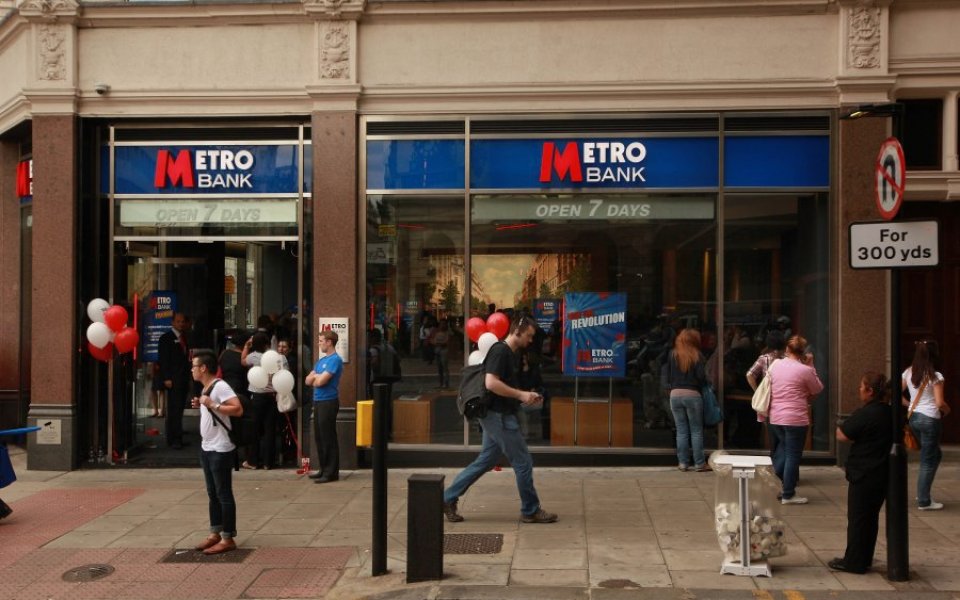Metro Bank bows to market pressure, cuts share price ahead of planned market float

Metro Bank, the London challenger, has been forced to lower the amount it’s hoping to raise through a market float by 20 per cent due to wild swings in bank share prices around Europe.
The bank will now look to raise £400m in coming weeks, down from £500m, and cutting its share price at £20 from £24 previously.
The cut has also reduced the valuation of the branch focused bank to £1.6bn, a figure that is still likely to raise eyebrows amongst analysts.
The bank’s alternative initial public offering strategy has seen it target large global asset managers in a bid to raise the slashed total, targeting exiting investors including BlackRock and Fidelity to shore up support.
Read more: Metro Bank float may take the (dog) biscuit
The reduced £1.6bn valuation remains more than one times the bank’s current book value, following a disappointing float by National Australia Bank owned Clydesdale and Yorkshire earlier this year that placed its value at just half book value.
Metro made a loss of £10.1m in the final quarter of last year according to results published in January, down from a loss of £10.7m in the previous three months.
Metro Bank has struggled to grow its loan to deposit ratio since it launched, partly down to its laid back sales strategy in its branches.
The banks loan to deposit ratio was was 69 per cent in 2015, up from 56 per cent in 2014. It's loan book is currently stands at £3.5bn.
The bank currently has 40 branches in London and the south east, well off its original target of 200 by 2020.
Read more: Metro Bank appoints advisers for an initial public offering in 2016
Deposits, from some 655,000 customers, hit £5.1bn in the last three months of last year, up from £2.9bn a year earlier.
Last year TSB, the challenger bank spun out of Lloyds Banking Group, was valued at £1.7bn, or around one times book value, when it was snapped up by Banco Sabadell.
Banking shares around Europe have struggled in recent weeks as prospects of an interest rate hike in the UK have been pushed back, and appetite for further easing from central banks gathers pace.
Warnings over revenue for 2016 from banks including heavyweights Deutsche, Credit Suisse and Société Générale caused investors to exit the sector.
British banks are scheduled to report on last years earnings in coming weeks and are expected to raise similar concerns over growth.